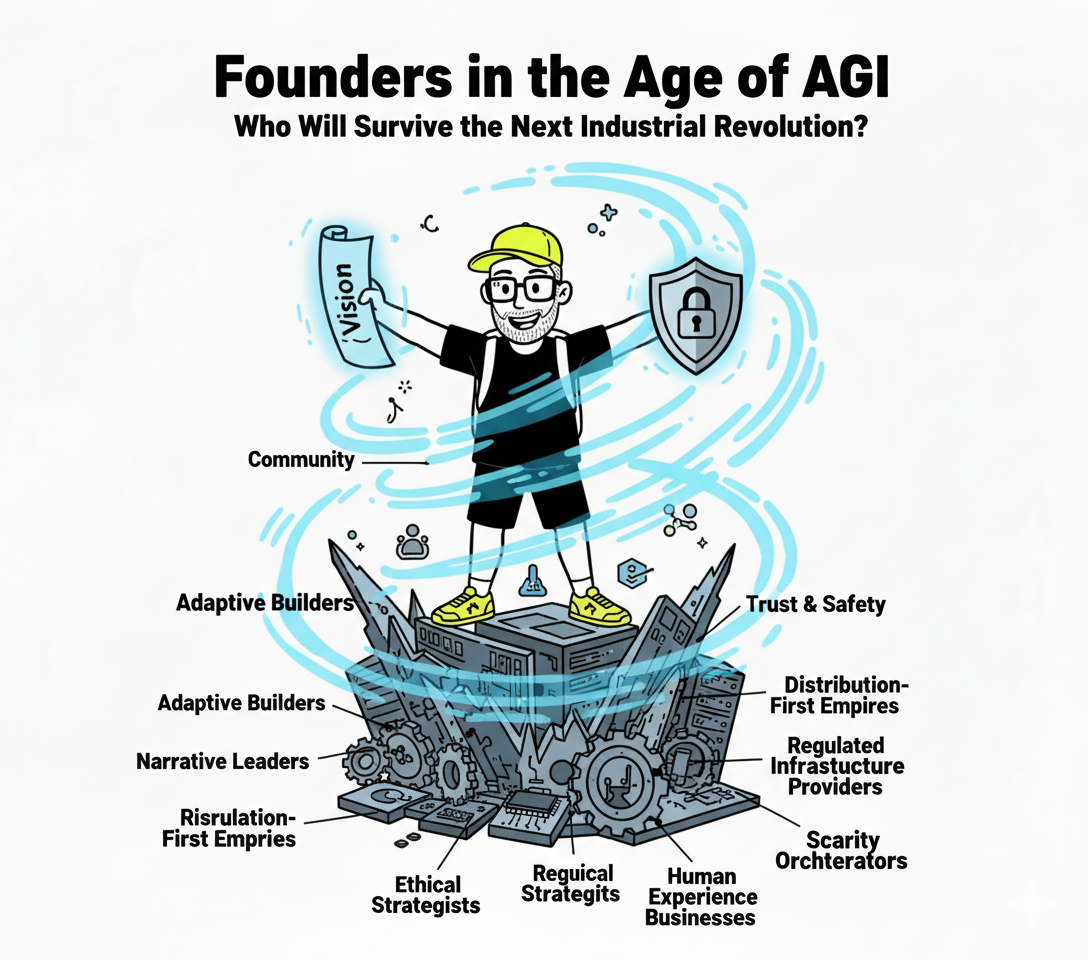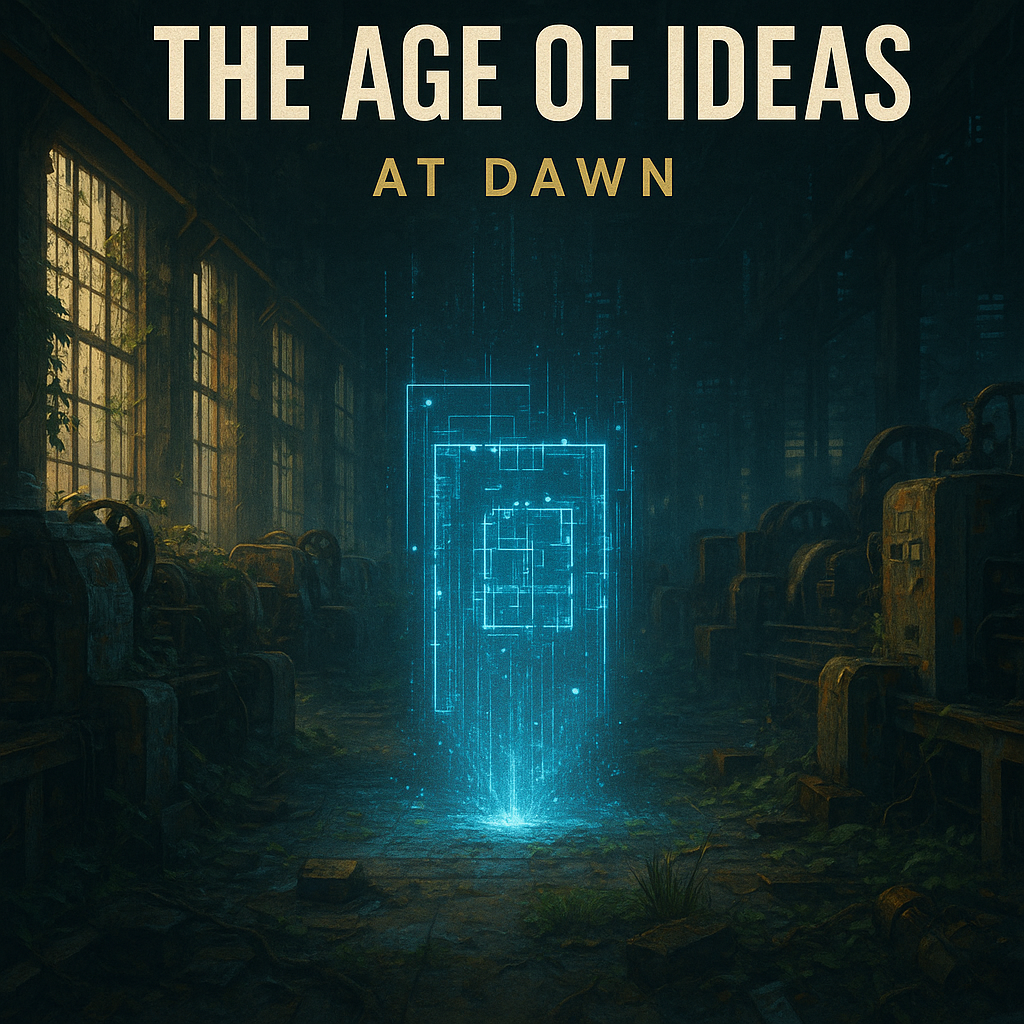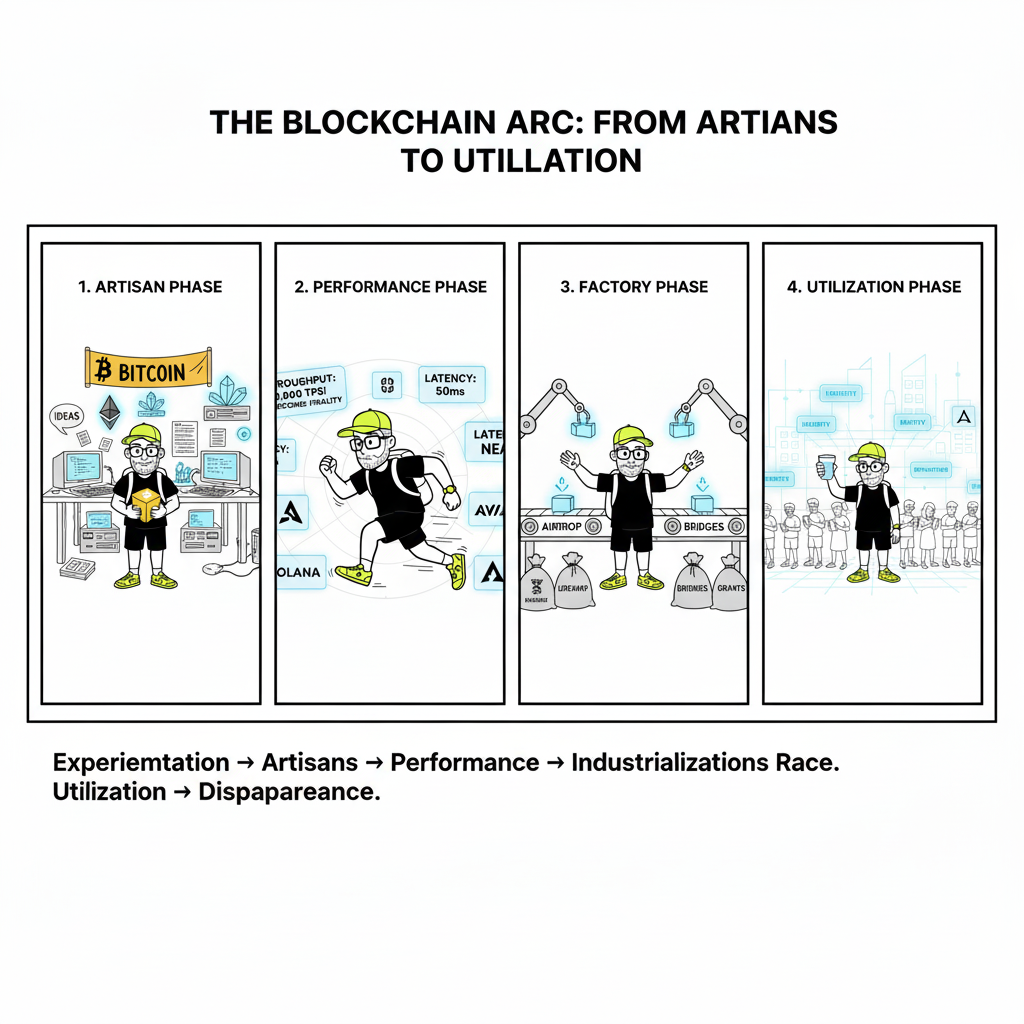The arrival of Artificial General Intelligence (AGI) will not just reshape technology — it will reshape what it means to build and survive as a founder. Just as the Industrial Revolution reorganized labor, society, and power, AGI will redraw the boundaries of human value and corporate strategy. The difference: this time, the disruption may unfold in years rather than decades.
So what types of founders and companies will survive in this new era?
The Founders Who Thrive
- The Adaptive Builders
Static playbooks will fail. AGI evolves too quickly for long-term defensive strategies. Founders who treat AGI as a living collaborator — constantly adjusting business models, workflows, and even missions — will dominate. - The System Thinkers
Execution becomes cheap when AGI can code, design, or strategize on demand. The scarce skill is the ability to orchestrate ecosystems: markets, incentives, governance, and networks that AGI alone cannot create. - The Narrative Leaders
In an age where machines can generate flawless content, the human voice still matters. Founders who craft vision, inspire trust, and give communities identity will wield disproportionate power. - The Regulation Navigators
History favors those who master the rules. In an AGI world, governments and institutions will clamp down on risk. Founders who can navigate compliance, licensing, and governance will become the new industrial titans. - The Ethical Strategists
Reputation will be the ultimate moat. Companies seen as reckless with AGI outputs will collapse under scrutiny. Founders who build alignment, safety, and responsibility into their DNA will outlast those chasing quick wins.
The Companies That Survive
- Distribution-First Empires
When AGI commoditizes creation, the scarce asset becomes distribution. Companies that own attention, trust, and brand — not just tools — will thrive. - Trust & Safety Layers
In a flood of synthetic intelligence, people will pay for curated, verified, and safe outputs. The winners will be the “FDA of AGI,” ensuring reliability and truth. - Regulated Infrastructure Providers
Just as banks and utilities became permanent fixtures after industrial revolutions, AGI-era infrastructure providers (compliance, custody, cloud, payments) will endure as indispensable bottlenecks. - Human Experience Businesses
As cognition gets automated, embodied experiences become more valuable. Travel, sports, wellness, arts, and spirituality cannot be outsourced to algorithms. These companies gain relative importance. - Scarcity Orchestrators
In a world of infinite generative abundance, value shifts to engineered scarcity — tokens, governance rights, immersive experiences, and digital ownership systems. These are tomorrow’s monopolies.
Survival Traits
- Speed: Winners adopt AGI faster than competitors can react.
- Resilience: Survivors build moats beyond intelligence — community, capital, regulation, trust.
- Human-AI Hybridity: The strongest companies are hybrids — AGI scales, humans provide judgment, meaning, and relationships.
Conclusion: The New Industrial Revolution
The Industrial Revolution changed how we work. The AGI Revolution will change what it means to be human. Founders who cling to old categories will be outcompeted. Founders who embrace AGI as infrastructure — while doubling down on uniquely human strengths — will not just survive, but shape the next century.




